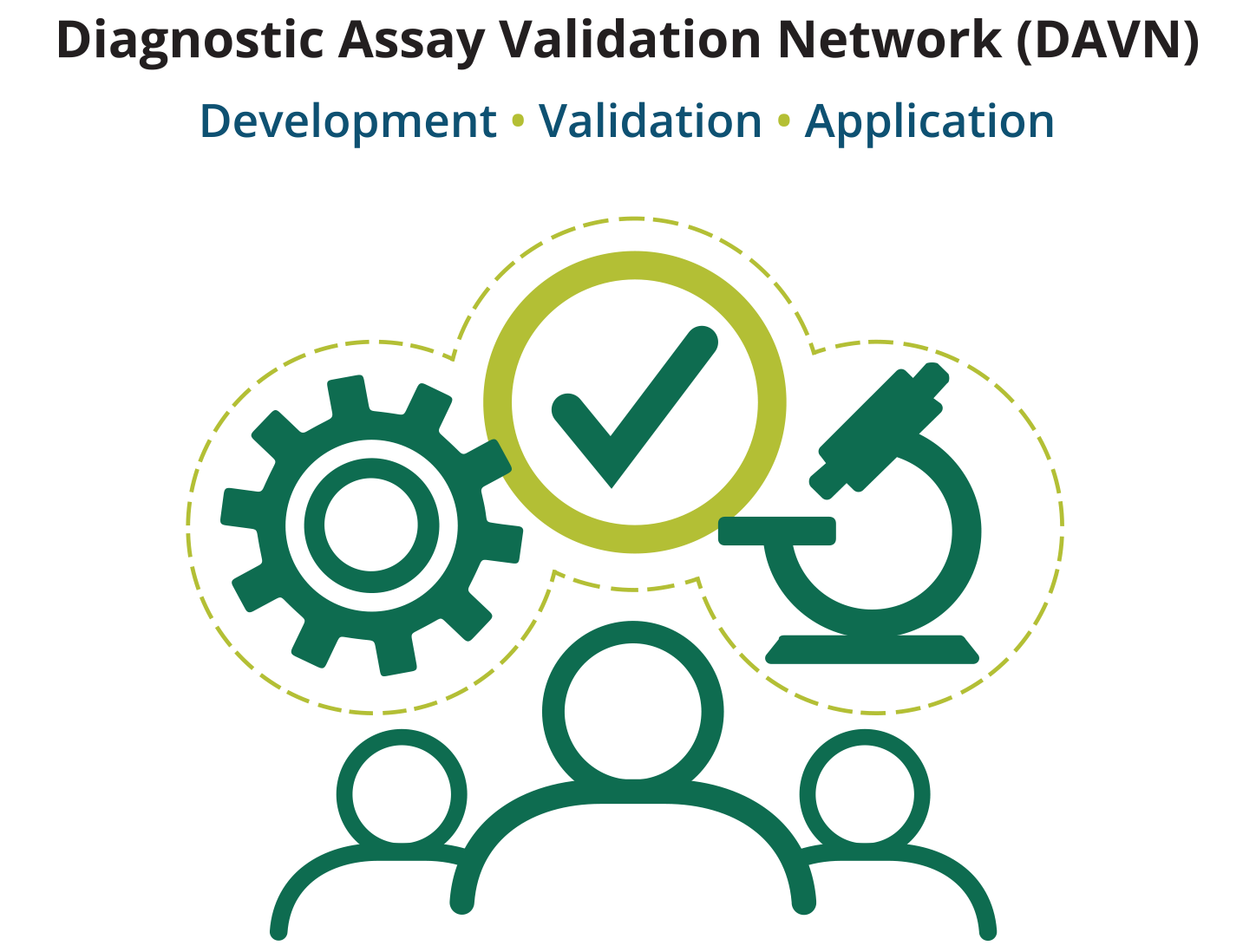This webinar is organized by the Diagnostic Assay Validation Network (DAVN)
Broadcast Date: March 14, 2024 | 1:00 – 2:30 PM Central
View On-Demand Webinar
Webinar Summary
Our speakers will guide you through the following key aspects including:
1) Designing Isothermal Diagnostic Tools: Learn about the principles behind isothermal amplification techniques, such as LAMP and RPA, and discover how these methods are tailored to target specific plant pathogens. Explore the nuances of primer design, probe selection, and assay optimization.
2) Developing Isothermal Diagnostic Assays: Gain insights into the development and validation of isothermal assays. Explore case studies and best practices in assay development, including sample preparation, reaction conditions, and result interpretation.
3) Implementing Isothermal Diagnostics in the Field: Understand the practical applications of isothermal diagnostics in plant pathology. Discover how these tools are deployed for on-site testing, disease management, and disease surveillance, contributing to informed decision-making and precision agriculture.
Learning Objectives
- Gain a comprehensive understanding of the fundamental principles of isothermal amplification techniques, such as Loop-Mediated Isothermal Amplification (LAMP) and Recombinase Polymerase Amplification (RPA), and how they differ from traditional PCR-based methods.
Explore real-world case studies that showcase successful applications of isothermal diagnostics in plant pathology. Understand how these techniques have been used to identify and manage plant diseases in diverse agricultural contexts.
Connect with experts and fellow participants in the field of plant pathology, fostering collaboration and knowledge sharing that can lead to innovative solutions for plant health.
Presenters:

Timothy Miles, Ph.D. Michigan State University
|
Dr. Miles is an Assistant Professor in the Department of Plant, Soil and Microbial Sciences at Michigan State University. His research program focuses on fungal and oomycete pathogens on small fruit and hops covering a broad range of topics such as fungal genomics, fungicide resistance, metagenomics, postharvest diseases, and molecular diagnostics. He received his B.Sc. degree in Biology at Western Michigan University in Kalamazoo, MI, and completed a Ph.D. from Michigan State University (MSU) in 2011 on anthracnose fruit rot of blueberry. Afterward, he held postdoctoral positions at the University of Idaho (Aberdeen, ID) and the United States Department of Agriculture–Agricultural Research Service (Salinas, CA), both focusing on molecular diagnostics of various plant pathogens (primarily Phytophthora, Pythium, and Rhizoctonia spp.). He then was an Assistant Professor at California State University–Monterey Bay, where he worked with undergraduate students on various molecular diagnostic projects for plant pathogens. He returned to MSU in 2018 and, currently, his research and extension interests are focused on developing and implementing the best disease management practices.
|

Douglas Higgins, PhD.
Virginia Tech Eastern Shore and Extension
| Dr. Douglas Higgins is an Assistant Professor of Plant Pathology and Extension Specialist at the Virginia Tech Eastern Shore Agriculture Research and Extension Center. His Research and Extension program is focused on generating disease management recommendations for vegetable and small grain growers in Virginia. Higgins’s research includes the optimization of pesticide applications, disease diagnostics and early detection, and advancement of novel disease management tactics for specialty and small grain crops.
|
Ozgur Batuman, PhD.
University of Florida
| Dr. Batuman joined the Department of Plant Pathology at the University of Florida in early October 2016. Before coming to the Southwest Florida Research and Education Center (SWFREC), he was a project scientist at the University of California-Davis. There, he worked on thrips population dynamics and tomato spotted wilt virus (TSWV) incidence in processing tomatoes, peppers, and lettuces in Central California to develop an integrated pest management strategy for TSWV/thrips control. He was also involved in identifying and characterizing viruses and virus-like diseases of other vegetable crops. Dr. Batuman’s research program at SWFREC focuses on better understanding pathogens causing economically important diseases in citrus and tomatoes and developing practical, long-lasting, and integrated pest management strategies for controlling plant pathogens that currently threaten citrus and tomato industries in Florida. His program further expanded toward fundamental aspects of research. For example, when understanding a particular pathogen's biology was lacking, he studied pathogen biology, epidemiology, and pathogen-vector-host interactions and developed novel diagnostic assays.
|
Nancy Sharma - PhD candidate Michigan State University
| Nancy is a Ph.D. candidate at Michigan State University in Plant Pathology. During her career, she has focused on disease management, pathogen interactions, and rapid detection techniques. Nancy earned her MS at Auburn University and BS with Honors from Punjab Agricultural University. Nancy's research has been published in peer-reviewed plant pathology journals. Her research so far has emphasized practical solutions for agricultural challenges, aiming to bridge academia and industry for impactful innovation.
|
